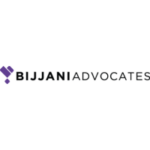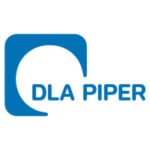-
What are the typical ownership structures for project companies in your jurisdiction? Does this vary based on the industry sector?
Project companies in Austria are usually set up in the form of a limited liability company (Gesellschaft mit beschränkter Haftung, GmbH). GmbHs are not eligible to be listed on a stock-exchange, have a minimum capital requirement (EUR 10,000 whereby minimum 5.000 must be paid by the shareholder into an Austrian bank account to be opened as a prerequisite for the registration of the company) and follow a strict capital maintenance regime. Regularly established as special purpose vehicles by the sponsors, GmbHs have legal personality and owe their debt towards their creditors with no recourse to their shareholders (only in limited circumstances). Holding structures are common to allow for an adequate participation and contribution of investors, security aspects of financing banks and tax considerations. In case of joint ventures, the SPV can be managed pursuant to a contractually agreed shareholder’s agreement.
The industry sector does not usually affect the decision regarding the form under which the project company shall be established. Also the recently established “FlexCo”, as an alternative to the GmbH, is not suitable for this type of transaction as it is designed for start-ups, offering the possibility to provide employees with certain participation rights.
In case the public sector is involved, public-private partnership schemes are beneficial to tap the financial power, specific know-how and efficiency of the private sector for the benefit of public projects. Various models are possible but in total, few of them exist compared to the number of implemented projects. Please also refer to question 12 below.
-
Are there are any corporate governance laws or accounting practices that foreign investors in a project company should be aware of?
No distinct, binding code on corporate governance has been enacted in Austria. A working group has been established and published the “Austrian Corporate Governance Code” to which stock corporations can voluntarily submit themselves. A declaration of commitment is only mandatory for Austrian companies that want to be admitted to the Prime Market of the Vienna Stock Exchange. General rules on corporate governance and duties of directors are laid out in the limited liability company act (Gesetz über Gesellschaften mit beschränkter Haftung, GmbHG) as well as the company’s articles of association (Gesellschaftsvertrag) and organisational regulations (Geschäftsordnung).
Listed companies are required to prepare a corporate governance report pursuant to the Austrian company code (Unternehmensgesetzbuch, UGB).
Accounting rules and principles for limited liability companies and stock corporations are laid out in the UGB (Austrian GAAP). Currently, companies do not have a choice to solely prepare their financial statements based on International Financial Reporting Standards (IFRS).
-
If applicable, what forms of credit support from sponsors or host governments are typically provided?
While sponsors are aiming to achieve structural separation from the project company in order not to be liable for the company’s debt (i.e. bilateral or syndicated credit facilities, construction costs, taxes, etc.) they usually provide some form of credit support to the company, either via equity injections, (subordinated) shareholder loans respectively, or via corporate guarantees (limited to a maximum amount and/or to the extent needed to complete the project) in favor of the financing banks or other form of security interest like a share pledge over their shares in the project company. Another form of support would be letters of credit issued by credit institutions following application by the sponsors in favor of suppliers of the project company.
Austria as a host government may support via its export credit agency, (Oesterreichische Kontrollbank Aktiengesellschaft, OeKB). In case the project company must provide a letter of credit to its supplier, the Republic of Austria can via OeKB issue bills of sureties (Wechselbürgschaften) in favour of the issuing bank so its risk and concurrently costs for the project company decrease.
-
What types of security interests are available (and suitable) for a project financing in your jurisdiction?
Under Austrian law, two primary categories of security interests are available and suitable for purposes of project financings: personal security rights (Personalsicherheiten) and in rem security rights (Sachsicherheiten).
The personal security rights comprise, most importantly, of (i) sureties (Bürgschaften), (ii) guarantees (Garantien), (iii) assumption of debt (Schuldbeitritt) and (iv) comfort letters (Patronatserklärungen).
The most prevalent forms of in rem security rights are (i) pledge of movable assets or rights, (ii) mortgages, (iii) transfer of title for security purposes (Sicherungsübereignung), (iv) assignment for security purposes (Sicherungszession) and (v) retention of title (Eigentumsvorbehalt).
The most suitable (and common) type of security interest for project financing in Austria are pledges of shares, bank accounts, receivables as well as mortgages. Assignment for security purposes of rights is less common than pledges due to the risk of triggering Austrian stamp duty (being a tax imposed on certain transactions such as assignments of rights (see question 17 below)). Pledges and transfer of title for security purposes of movable assets (such as stock in warehouses or equipment) are extremely rare due to very stringent publicity requirements for perfecting the pledge, requiring physical transfer over the assets in question or any equivalent measure (see question 5 below).
-
How are the above security interests perfected?
The personal security rights are not subject to the perfection requirements under Austrian law.
The perfection of the in rem security rights depends on the asset class over which such rights should be granted and needs to be performed with respect to each (material or immaterial) asset separately. In general, the perfection of the in rem security rights over:
- movable assets, requires acquiring of physical possession thereof (noting that there are certain workarounds (such as transfer via declaration) in case physical transfer would be too burdensome or impractical to be performed);
- real estate, requires the registration thereof in schedule C of the Austrian land register (Grundbuch) for the sake of which a mortgage agreement in form of a notarial deed must be entered into by the mortgagor and mortgagee (noting that such registration triggers registration fees amounting to 1.2% of the secured amount);
- superstructures on third party land (Superädifikat), requires the deposit of the respective pledge deed;
- shares, requires the notification of the company whose shares are subject to the pledge;
- bank accounts or receivables, requires the notification of the respective third party debtor (such as an account bank or a trade partner) or an entry in the books of the security grantor; and
- IP-rights such as trademarks, patents or designs, requires a registration with the applicable IP register (e.g., the Austrian Patent Office (Österreichisches Patentamt)).
-
Please identify how security is enforced (notably the enforcement options available for secured parties) both pre and post insolvency/bankruptcy of the project company?
Pre-Insolvency/Bankruptcy:
The security enforcement procedure varies significantly depending on the category of security interest in question on the one hand and the underlying contractual arrangements on the other.
As regards personal security rights, there are no specific enforcement procedures and the enforcement process is subject to the agreed terms and conditions of the underlying contractual arrangement. The secured party can require payment from the security grantor directly or enforce it in court.
In case of in rem security rights, enforcement based on statutory law in court proceedings is most common. However, the underlying security documents can provide that other enforcement procedures are applicable (such as out-of-court enforcement, e.g., by way of public auction or private sale). In relation to the most pertinent types of in rem security rights, the following statutory rules and market practices are applicable:
- Pledge of shares: it is common to arrange for out-of-court enforcement by way of public auction or private sale. This requires a notification to the pledgor and the valuation by a valuation expert (usually by an auditing firm). In case of a public auction, the collateral is sold to the highest bidder (whereas the pledgor or its affiliates are usually granted the right to participate in the public auction). In case of a private sale, the pledgee can sell the collateral to any buyer provided that the sale price amounts to at least the value assessed by the valuation expert (whereas the pledgor is usually granted the right to make a (binding or non-binding) suggestion regarding the buyer).
- Pledge of receivables and bank accounts: the most common practice is to grant the pledgor the right to directly claim the payment from the third party debtor or the transfer of the account balances from the account bank in case of default as a way of out-of-court enforcement. This requires a notification to the pledgor (usually one week prior to the commencement of the enforcement).
- Mortgages: enforcement by way of statutory law in court proceedings is most common in Austria, however out-of-court proceedings by way of public auction and private sale (the latter requiring a valuation by a valuation expert) are possible too.
Post-Insolvency/Bankruptcy:
Typically, rights for preferential treatment that were validly established before the commencement of insolvency proceedings, as well as rights of segregation (Absonderungsrechte) concerning assets not included in the insolvency estate, remain unaffected by the initiation of the proceedings. These security rights can be enforced at any point in time, however, if such rights for preferential treatment could jeopardise the continuation of the business of the security grantor, such rights may not be enforced before the expiry of six months after the opening of insolvency proceedings (subject to some exceptions in favour of the security’s beneficiary).
Any surplus funds following the complete satisfaction of the creditor will be allocated to the insolvency estate (and distributed pro rata among all remaining insolvency creditors). Conversely, if the proceeds fall short of fully meeting the creditor’s claims, the creditor is categorized as an (ordinary) insolvency creditor concerning the remaining unpaid portion of its claims.
-
What are other important considerations in relation to the security regime in the jurisdiction that secured parties should be aware of?
Austrian corporate law prohibits the return of equity from an Austrian limited liability company or joint sock corporation to its (direct or indirect) shareholders and/or its affiliates (Verbot der Einlagenrückgewähr). An Austrian company may not make any payments to its shareholders except for (i) profit distributions, (ii) in the process of a formal reduction of statutory capital or (iii) during the liquidation proceedings. This also encompasses benefits granted by such company to its shareholders (or other affiliated companies other than its own subsidiaries), such as up-stream or cross-stream guarantees, assignments for security purposes or pledges of assets, if no “adequate consideration” is received in return. Any agreement or transaction between a company and its shareholders, affiliates and/or any third party granting any advantage to the shareholders or affiliates, which was not entered into in compliance with the arm’s length principle (Prinzip der Drittvergleichsfähigkeit) or is not otherwise commercially justified (betrieblich gerechtfertigt) is void and unenforceable.
-
What key project risks should lenders be aware of in project financings in your jurisdiction? This may include, but may not be limited to, the following risks: force majeure, political risk, currency convertibility risk, regulating or permitting risk, construction/completion risk, supply or feed stock risk or legal and regulatory risk).
In general, project risks in Austria are manageable. Next to the core risks inherent to any project financing, i.e.
- interest rate risk – which may be hedged;
- counterparty credit risk (regarding suppliers or offtakers) – which may be managed by rating triggers, termination rights or credit support;
- completion risk – which may be managed via sponsor guarantees; and
- (new) technology risk – which may be mitigated with the help of a technical advisor and by choosing an experienced contractor,
other project risks and potential mitigants largely depend on the particularities of a specific project and will thus need to be analysed on a case-by-case basis during a proper due diligence and appropriately dealt with in the documentation. On the specific market price risk for renewable energy projects see question 15 below.
Austria has a very stable legal system and changes in law do not come by surprise. Hence, legal risks are rather limited. The concept of force majeure is not inherent to the Austrian legal system, but it is possible to contractually agree to it. Otherwise, the doctrine of “loss of basis of the transaction” (Wegfall der Geschäftsgrundlage) may be invoked. This concept centres around unforeseeable, substantially changed circumstances that are not attributable to the sphere of one party. However, details are highly debated in legal literature hence this concept cannot be seen as safe harbour and a proper contractual arrangement is advisable.
-
Are any governmental / regulatory consents required and are any financing or project documents requirement to be filed with any authority in order to be admissible in evidence in a court of law, valid or enforceable?
In principle, financing documents for project finance in Austria do not require the provision of governmental or regulatory consents. However, in certain occasions, a consent or registration may be required for the validity, enforceability or creation of rights. For example, easements (Dienstbarkeiten) have to be registered with the land registry (Grundbuch) same as perfection of security rights over real estate.
Also, when it comes to transactions in the real estate sector, notarial certifications are necessary to be able to legally conclude a transaction. In case a foreigner wants to acquire property in Austria permission from the land transaction authority (Grundverkehrsbehörde) may be required in case there is a cultural, social or economic interest in the conclusion of the legal transaction and political interests of the state are not adversely affected.
In infrastructure and energy projects, the provision of environmental licenses is required for the construction and development of the project.
-
Are there are any specific foreign exchange, royalties, export restrictions, subsidies, foreign investment, that are relevant for project financings (particularly in the natural resources sectors)?
Austria has recently adopted enhanced regulations for foreign direct investments (FDIs), requiring obligatory filings for various types of transactions in sensitive economic sectors pursuant to the Austrian Investment Control Act (Investitionskontrollgesetz, InvKG).
The list of sensitive sectors where the acquisition of 10 per cent of the voting shares triggers a mandatory FDI filing includes, inter alia, operation of critical energy infrastructure. In addition, the list of sensitive sectors where a threat to security or public order, including crisis management and services of general interest, may arise includes, for example, energy, transport, health and telecommunications.
Hence, if a natural person or a legal entity with its registered office or headquarters outside the European Union, the European Economic Area or Switzerland considers the acquisition of shares, voting rights or any other controlling interest in an Austrian undertaking or in substantial assets of such undertaking active in a sensitive sector, obtaining, FDI approval may be required.
-
Please set out any specific environmental, social and governance issues that are relevant. For example, are project companies subject to certain ESG laws, reporting requirements or regulations?
Operational plants must comply with environmental standards and be approved in accordance with the prevailing laws and regulations in Austria, first and foremost the (Umweltverträglichkeitsprüfungsgesetz, UVP-G and Wasserrechtsgesetz, WRG). This involves a series of procedures, including document submissions, compliance with environmental and safety standards, and ensuring adherence to all necessary permits and certifications. Furthermore, the respective building regulations (Bauordnung, BauO) of the federal states must be observed and the operating facility requires an operating facility permit in accordance with the (Gewerbeordnung, GewO). It is essential for sponsors and project companies to carefully examine the requirements of the respective location and familiarize themselves with local authorities and relevant legal frameworks to ensure compliance with all obligations and duties.
In addition, it is common practice that the banks financing the project require compliance with specific EU environmental laws and ESG criteria and also impose relevant reporting requirements on the borrowers, certifying compliance with such standards (e.g. the preparation and submission of an environmental and social action plan of the project company). Explicit compliance with Equator Principles is not (yet) common practice for project financings in Austria.
Moreover, the Corporate Sustainability Reporting Directive (CSRD), adopted in November 2022, was required to be transposed into Austrian law by 6 July 2024. This has not been completed yet. Until the CSRD is transposed into national law, there is no legal obligation for companies in Austria to prepare sustainability reports in accordance with the CSRD or the European Sustainability Reporting Standards (ESRS). The CSRD does not have vertical direct effect, whereas it cannot be directly enforced against private companies or individuals. The CSRD builds on and significantly expands the requirements of its predecessor, the Non-Financial Reporting Directive (NFRD), which currently applies to certain large undertakings. In Austria, the NFRD was implemented through the NaDiVeG (Nachhaltigkeits- und Diversitätsverbesserungsgesetz), which already obliges certain companies to disclose non-financial information regarding environmental, social, employee, human rights, and anti-corruption matters. However, the CSRD will introduce more detailed and stringent requirements, extending the scope of companies required to report and mandating the use of the European Sustainability Reporting Standards (ESRS).
Once implemented, the directive will impose additional sustainability reporting obligations on (i) all small and medium-sized undertakings, except micro undertakings, which are public-interest entities (e.g., whose transferable securities are admitted to trading on a regulated market in the EU) and (ii) large undertakings, i.e. capital companies which meet two of the three following criteria: (x) balance sheet total exceeding EUR 25,000,000, (y) net turnover exceeding EUR 50,000,000 and/or (z) workforce comprising of more than 250 employees. Under the CSRD, these companies will have to document (in the management report of their financial statements) impacts on sustainability matters and how sustainability matters affect their development, performance and position. Such reporting will need to encompass information regarding, among other things, (i) sustainability goals, (ii) the role of the management board and the supervisory board regarding sustainability matters and (iii) the most significant adverse effects of the company.
-
Has any public-private partnership models or laws been enacted in the jurisdiction, and if so, are they specific to certain industry sectors?
No specific public-private partnership (PPPs) models or laws have been enacted in Austria. As indicated in question 1 above, there is a variety of possible models. The selection of the appropriate project structure for PPPs must be thoroughly aligned with the requirements and objectives of the project sponsor, as well as the specific conditions of each project. In sensitive sectors such as the transportation sector or public infrastructure construction, the private entrepreneur plans, finances, and operates the infrastructure object whereas the operational expenses and capital costs are covered through fees paid by the public for utilizing the facility.
-
Will foreign judgments, arbitration awards and contractual agreements to arbitrate be upheld?
Recognition of foreign judgements
The recognition (and enforcement) of judgements of foreign courts is subject to the Austrian Enforcement Code (Exekutionsordnung) as well as bilateral and multilateral international treaties.
The judgements of the courts of the Member States of the European Union are generally recognized and enforced by Austrian courts without any special procedures on the basis of the Regulation No 1215/2012 of the European Parliament and the Council of 12 December 2012 (Brüssel Ia Regulation (Recast)), however, subject to certain limitation (e.g., if the judgement violates the Austrian ordre public (general principles of law)).
The judgements of the courts of non-European Union states could be generally recognized and enforced by Austrian courts based on bilateral and multilateral international treaties and subject their respective limitations. Most notable examples of such treaties are (i) Hague Convention on Choice of Court Agreements 2005, (ii) the Lugano Convention on Jurisdiction and Enforcement of Judgments in Civil and Commercial Matters and (iii) Convention between Austrian Republic and United Kingdom for the Reciprocal Recognition and Enforcement of Judgments in Civil and Commercial Matters (only with respect to the judgements of “superior courts” as defined therein).
Recognition of foreign arbitral awards and contractual agreements to arbitrate
The recognition of contractual agreements to arbitrate is subject to the Austrian Code of Civil Procedure (Zivilprozessordnung). According thereto, foreign contractual agreements to arbitrate (Schiedsvereinbarungen) will be recognised by Austrian courts, provided they were documented in (any) written form.
Furthermore, Austria has ratified the 1958 New York Convention on the Recognition and Enforcement of Foreign Arbitral Awards. Foreign arbitral awards are therefore generally recognized in Austria (subject to limitations).
-
Is submission to a foreign jurisdiction and waiver of immunity effective and enforceable?
Submission to the jurisdiction of foreign courts is generally effective and enforceable, it can be, however, subject to the interpretation of Austrian courts. For instance, even if an Austrian court determines that a jurisdiction clause constitutes an exclusive venue (ausschließlicher Gerichtsstand) and such court is not the designated court, there is a potential risk that the court would conclude that it has jurisdiction unless the defendant to such proceedings challenges the court’s jurisdiction upon such defendant’s first opportunity to present arguments in the subject matter of the proceedings.
A waiver of (sovereign) immunity is usually effective, however it is subject to its compliance with public international law or other (special) immunities such as diplomatic immunity.
-
Please identify what you consider to be (a) the key current issues for project financing in your jurisdiction; and (b) any emerging trends or topics which should be considered or focused on by project financing stakeholders.
The Austrian federal government has set itself the goal of achieving 100 percent electricity supply from renewable energy sources by 2030 and climate neutrality by 2040. To achieve these goals, Austria passed the Renewable Energy Expansion Act (Erneuerbaren-Ausbau-Gesetz, EAG) in 2021 in order to pave the way for a “green investment boom” and the “hoped-for game changer” for the expansion of the renewable electricity share from currently around 75% to 100% by 2030. Instead of a fixed feed-in tariff for the green electricity fed into the grid, the EAG provides for two types of subsidies: market premiums as a surcharge on the market price for green electricity sold and fed into the grid, and investment grants as a one-off payment for smaller green power plants. Since this new regime exposes renewable energy projects to a (new) market price risk, that additional risk must now also be taken into account in project financings by the financing banks.
-
Please identify in your jurisdiction what key legislation or regulations have been implemented (or will / plan to be) for projects in connection with the energy transition?
Like other European countries, Austria must implement the Renewable Energy Directive III (Directive (EU) 2023/2413 of the European Parliament and of the Council of 18 October 2023 amending Directive (EU) 2018/2001, Regulation (EU) 2018/1999 and Directive 98/70/EC as regards the promotion of energy from renewable sources, and repealing Council Directive (EU) 2015/652) (RED III) which came into force on 20 November 2023 until 1 May 2025, whereby certain aspects of the Directive were required to be implemented into national law by 1 July 2024.
While Austria has made progress in aligning its legal framework with RED III, key measures have been delayed, including the anticipated Erneuerbaren-Ausbau-Beschleunigungsgesetz (EABG). This delay introduces regulatory uncertainty for renewable energy projects.
The overall target of RED III is to increase the share of renewable energy in the EU’s overall energy consumption to 42.5% by 2030. The Directive also introduces specific targets for member states in the industry, transport, and building (district heating and cooling) sectors.
Most importantly for practical aspects of project financings, member states must identify areas for the acceleration of renewables where projects will undergo a simplified and fast-track audit procedure. The deployment of renewables will also be of “overriding public interest” limiting possible legal objections to new installations.
-
Please identify if there are any material tax considerations which need to be taken into account for a project financing in your jurisdiction, and if so, how such tax issues can be mitigated.
Interest paid by an Austrian borrower to a non-Austrian resident lender under a non-securitized loan agreement may only under specific circumstances be subject to Austrian withholding tax. In this case the non-resident lender (unless acting through an Austrian permanent establishment) should not be subject to limited (corporate) income tax liability in Austria with the interest payments received. Different rules inter alia apply in case of securitized loan arrangements, i.e., in the form of bonds or in case of fund vehicles acting as borrowers.
Although loan agreements as such are not subject to stamp duty, specific collaterals, such as mortgages, suretyships, assignments, bills of exchange may trigger Austrian stamp duty. Given that Austrian stamp duty generally requires a certain Austrian nexus of the underlying transaction, there are tested stamp-duty avoidance structures available. Due to the rather wide scope of Austrian stamp duty, any document set up in the context of a financing transaction should be scrutinized thoroughly to avoid Austrian stamp duty from being triggered.
-
What types of funding structures (e.g. debt, equity or alternative financing) are typical for project financing in your jurisdiction. For example, are project bond issuances, Islamic finance and – in the context of mining deals – streams or royalties, seen as attractive (and common) options for stakeholders?
Typically, project financing in Austria is provided in the form of debt/bank loans (including financings covered by the export credit agency) and equity via (subordinated) shareholder loans or capital injections provided by the sponsors. Mezzanine financing as well as government subsidies can be seeen as well. Islamic finance is rarely used in Austrian project financings. Bond issuances as well as crowdfunding structures are possible to allow private financiers to participate in the funding of the project.
The most important feature of project financing is the coverage of capital and operating costs as well as loan liabilities (interest and principal payments and financing costs) from the project’s future, ongoing free cash flow.
-
Please explain if there are any regional development banks or export credit agencies, and if so, what is their role in project financing in your jurisdiction and beyond.
The Austrian development bank (Oesterreichische Entwicklungsbank AG, OeEB) was founded in March 2008 as the development bank of the Republic of Austria. With a public mandate, OeEB works for better living conditions in developing countries via focusing on the private sector. OeEB does not finance projects in Austria but has an important role for developing countries or emerging markets pursuant to the OECD Development Assistance Committee List (DAC list).
The Austrian export credit agency can assist with bills of surety for projects in Austria (please also refer to question 3 above) and with financings as well as export guarantees from the federal government for business and projects undertaken by Austrian companies in foreign countries, difficult markets respectively.
-
Please explain if there are any important insurance law principles or considerations in connection with any project financing in your jurisdiction.
The respective finance documentation for project financing contains obligations of the borrower/project company to enter into (a number of) insurance policies with respect to the project assets (such as buildings, machinery, etc.). The risks covered by such insurance policies are typically property damage, own or third-party liability, business interruption. In general, the borrower’s/project company’s claims under insurance policies are assigned or pledged in favor of the respective lenders (and the payment of any claims thereunder blocked and subject to permission by the lenders (Vinkulierung)). Consequently, the insurance policies should allow such assignment or pledge.
Austria: Project Finance
This country-specific Q&A provides an overview of Project Finance laws and regulations applicable in Austria.
-
What are the typical ownership structures for project companies in your jurisdiction? Does this vary based on the industry sector?
-
Are there are any corporate governance laws or accounting practices that foreign investors in a project company should be aware of?
-
If applicable, what forms of credit support from sponsors or host governments are typically provided?
-
What types of security interests are available (and suitable) for a project financing in your jurisdiction?
-
How are the above security interests perfected?
-
Please identify how security is enforced (notably the enforcement options available for secured parties) both pre and post insolvency/bankruptcy of the project company?
-
What are other important considerations in relation to the security regime in the jurisdiction that secured parties should be aware of?
-
What key project risks should lenders be aware of in project financings in your jurisdiction? This may include, but may not be limited to, the following risks: force majeure, political risk, currency convertibility risk, regulating or permitting risk, construction/completion risk, supply or feed stock risk or legal and regulatory risk).
-
Are any governmental / regulatory consents required and are any financing or project documents requirement to be filed with any authority in order to be admissible in evidence in a court of law, valid or enforceable?
-
Are there are any specific foreign exchange, royalties, export restrictions, subsidies, foreign investment, that are relevant for project financings (particularly in the natural resources sectors)?
-
Please set out any specific environmental, social and governance issues that are relevant. For example, are project companies subject to certain ESG laws, reporting requirements or regulations?
-
Has any public-private partnership models or laws been enacted in the jurisdiction, and if so, are they specific to certain industry sectors?
-
Will foreign judgments, arbitration awards and contractual agreements to arbitrate be upheld?
-
Is submission to a foreign jurisdiction and waiver of immunity effective and enforceable?
-
Please identify what you consider to be (a) the key current issues for project financing in your jurisdiction; and (b) any emerging trends or topics which should be considered or focused on by project financing stakeholders.
-
Please identify in your jurisdiction what key legislation or regulations have been implemented (or will / plan to be) for projects in connection with the energy transition?
-
Please identify if there are any material tax considerations which need to be taken into account for a project financing in your jurisdiction, and if so, how such tax issues can be mitigated.
-
What types of funding structures (e.g. debt, equity or alternative financing) are typical for project financing in your jurisdiction. For example, are project bond issuances, Islamic finance and – in the context of mining deals – streams or royalties, seen as attractive (and common) options for stakeholders?
-
Please explain if there are any regional development banks or export credit agencies, and if so, what is their role in project financing in your jurisdiction and beyond.
-
Please explain if there are any important insurance law principles or considerations in connection with any project financing in your jurisdiction.















